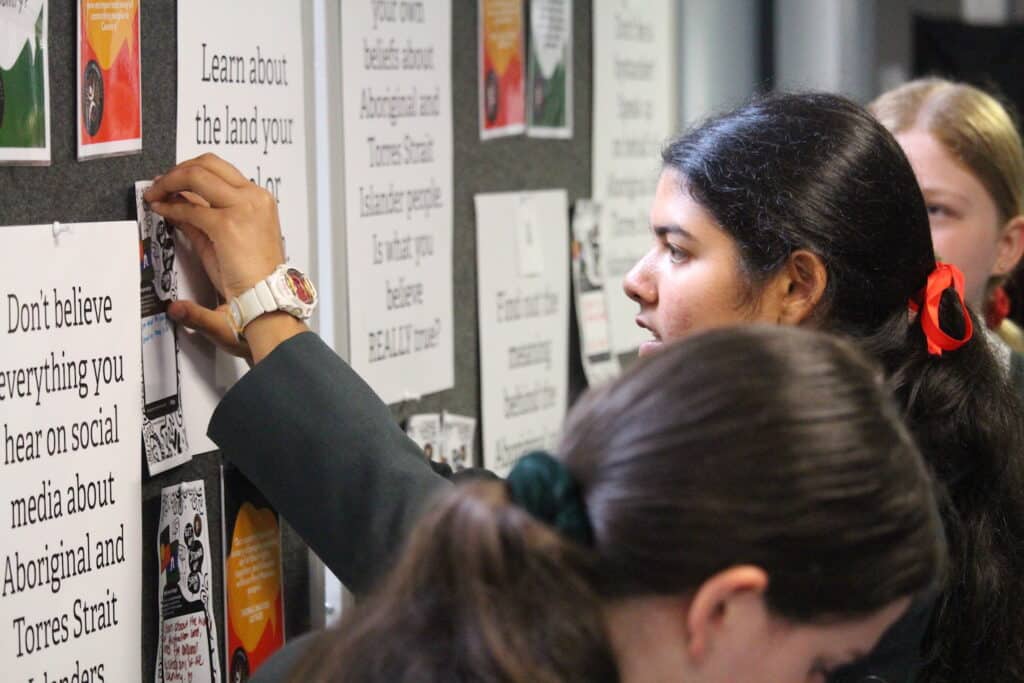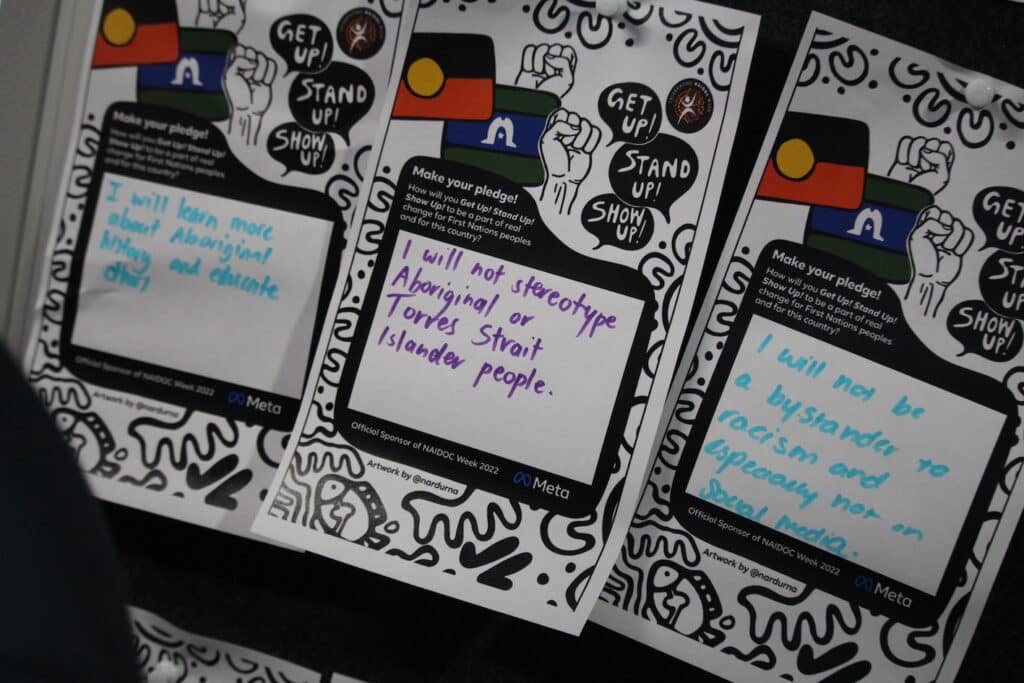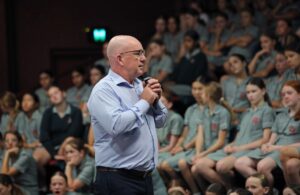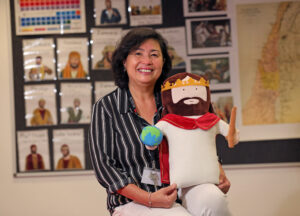NAIDOC Day Celebrations

NAIDOC Week was celebrated during the school holidays, from 3 to 10 July. Santa Maria College recognised this important event today through a range of activities to celebrate the history, culture and achievements of Aboriginal and Torres Strait Islander peoples.
The Theme
The NAIDOC theme for 2022 is Get up! Stand up! Show up! The theme recognises the history of getting up, standing up and showing up from the frontier wars to Aboriginal and Torres Strait Islander communities fighting for change today and the courage not to lose the momentum for change.
Call to Action
There are practical ways we can all work for change by:
- Seeking environment, cultural and heritage protections.
- Supporting Constitutional change, truth-telling, and calling out racism
- Celebrating those who have driven and led change in communities
- Recognising the heroes and champions of change
- Learning about First Nations people and how to care for country
- Developing relationships between Aboriginal and Torres Strait Islander peoples and non-Indigenous Australians based on justice, equity, and the recognition of Aboriginal and Torres Strait Island peoples’ rights.
- Amplifying our voices to narrow the gap between aspiration and reality, good intent, and outcome.

Raising Awareness
Several activities were held at recess and lunchtime today to celebrate the rich culture and achievements of Aboriginal and Torres Strait Island people. These included:
- Pledging to stand up for change.
- Colouring in competition using this year’s theme as the focus.
- Learning common words of the local Aboriginal language
- Quizzes on Aboriginal and Torres Strait Islander peoples’ culture and achievements
- Creating displays that celebrate the culture and achievements of indigenous Australians.
- Sampling tasty Indigenous foods

Our Commitment
Santa Maria College is committed to raising awareness of the achievements, culture, and history of the First Nations people. We want to effect change by learning more about the rich culture, history, achievements and struggles of the First Nations peoples so we can find practical ways to stand with our Indigenous brothers and sisters. Seeking environmental, cultural, and heritage protections must be done together if we are to preserve this remarkable country, we call home.
We asked two of our indigenous students the following questions, and here is what they had to say.
What is one thing about your culture that you wish more people knew about?
Lola said, “I wish more people knew about past events and would not say things like “why don’t they get over it” and “it’s all in the past.” Even though there are still ongoing prejudices.”
Ainslie added, “One thing I wish people knew about my culture more is how detailed it is and how far back our culture, customs, and traditions go. We have been here for over 60,000 years, and very few people know that.”
Why is your culture important to you?
“My culture is important to me because it is a part of who I am, a part of my history and ancestry, and it is important to learn about it so it can keep going as a piece of our country’s history.”, said Lola
Ainslie said, “My culture is important to me because it’s who I am, and it shapes who I am as a person. It has also brought me closer to my family and gives me a different view of the world.”
JILLIAN LANDERS | Director of Mission

Inspiring Change: Earth Day 2024
Our Earth Day celebration this week was a powerful reminder of our collective responsibility to protect our planet for future generations.

Unlocking the Power of Connection: Dr Mark Williams Inspires Students
After the success of his first visit last year, we were excited to welcome Dr Mark Williams back to talk with our Years 7, 8 and 9 students this week.

Continuing the Journey: Carol Beins Upholds Her Daughter’s Legacy
This year, Carol Beins follows her daughter Shoshanna’s footsteps, journeying the same path as the former Religious Education teacher.
Author: Santa Maria College
Santa Maria College is a vibrant girls school with a growing local presence and reputation. Our Mission is to educate young Mercy women who act with courage and compassion to enrich our world. Santa Maria College is located in Attadale in Western Australia, 16 km from the Perth CBD. We offer a Catholic education for girls in Years 5 – 12 and have 1300 students, including 152 boarders.







